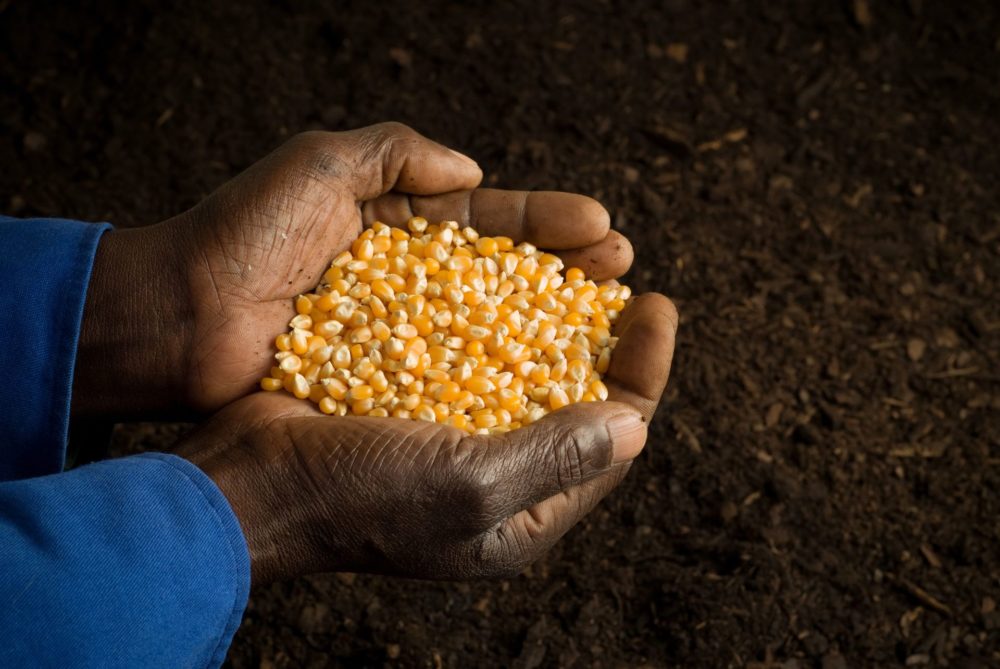Kenya’s Good Food Innovation Fund (GFIF) recently unveiled the six companies participating in its first cohort.
As the name suggests, “good food” is the focus area for this first cohort. GFIF designates regenerative, nutritious, and sustainably and equitably produced food as good food. The fund’s goal is to make such foods more widely available and affordable in Sub-Saharan Africa by supporting companies that grow, distribute and provide that food.
The fund, which is managed by social-impact focused advisory firm Intellecap, was started in 2021 with a $5 million grant from the Rockefeller Foundation.
The six SMEs selected from 144 applications include:
- Agri Farmer Centre (Agriface) from Rwanda, which is working to provide fortified whole grain to schools through a government feeding program
- Muteesa Company from Rwanda, providing post-harvest services and technologies to farmers to help them access high-value markets
- NatureLock Foods, a Kenyan supplier of dried, nutritious foods
- Keep it Cool, a Kenyan company providing solar-powered refrigeration solutions to minimize food waste for farmers and food vendors
- Shalem Investments, a Kenyan company that provides smallholder farmers with services and inputs, then buys their produce to sell to predetermined markets
- Smart Logistics Solutions, a Kenyan producer of bean-based products such as noodles and porridges, that have been fortified with zinc and iron.
The cohort will receive financial backing of up to $1 million, with startups each getting a sum ranging from $100,000 to $200,000. A lower threshold of $50,000 is in consideration due to the small size of the companies and their ability to properly manage the funds.
Beyond financing, the fund will provide technical support on creating financial models and growth projections. It will also help companies stream line their operations and teams to get them investor ready.
Regional focus
Africa has the highest share of people suffering from food insecurity in the world, according to the United Nations. Roughly 21% of people on the continent suffered from hunger in 2020, or 282 million people. On the other side of the malnutrition scale, Africa is home to 24% of the world’s overweight children aged under 5, according to the World Health Organization.
Initially, GFIF’s call for applications cast a net on Kenya, Rwanda and Burundi, where Rockefeller was already running projects. This first cohort complements existing projects in these countries and targets institutional feeding programs, such as suppliers of fortified whole grain to schools and hospitals.
Apart from their focus on enabling access to good food, companies were chosen based on their potential impact and the uniqueness of their ideas.
“They’re the ones that were really speaking into what the project aims,” William Mulehi, an associate vice president of business consulting and research at Intellecap, tells AFN.
“There’s also a portfolio mix in terms of the impact these organizations are looking at, because we have some that have very high potential to scale and to reach the numbers that we are targeting.”
The project also aims to positively shift food policies in the select countries. For example, Agriface is pushing for fortification of food. While this fortification of staples like vegetable oils, wheat and maize flour is mandatory in Kenya, the case is voluntary for food producers in Rwanda, hence the push from the Rwandese SME.
“We are trying to support these companies with the hope that our intervention is going to have a ripple effect, in terms of policy and policy development,” says Mulehi.
Market nuances
Increasing access to good food also means increasing support for SMEs in fairly young markets.
Consider Burundi. While it’s a focus for GFIF, companies from there didn’t make the cohort owing to the country’s smaller market in comparison to Kenya and Rwanda.
“We didn’t really get strong applications from Burundi,” Mulehi says. “However, we are holding information sessions in Bujumbura [Burundi’s capital], just to take potential companies through the application process of what is required as we try to understand the market nuances in this particular country, which may have had an effect on the low uptake from the companies there.”
Though it’s not supporting the GFIF’s project directly, Burundi’s division of the World Food Programme also helped in drumming up support to get the companies to participate in the sessions. GFIF is now collecting data to tailor its upcoming call for the next cohort, making it suitable for Burundi’s SMEs to get accepted and access the fund’s support.
“In some of these markets, you need to ensure your efforts are complemented,” explains Mulehi. “WFP does a lot of institutional feeding to schools and such settings. So we are working together because there’s an overlap in our mandate. Also for them being on the ground, they have experience in terms of the type of organizations that are in the market and what sort of support that they require.”
Future cohorts
The GFIF will announce the call for its next cohort in November, widening the list of countries to include Ghana and Benin. This time, the innovation in focus will be on vertically integrated solutions such as logistics, post-harvest processing, distribution and retail.
“Our intervention should be able to go a long way in de-risking these companies, for them to be able to access new markets which they would otherwise not be able to venture into maybe due to the perceived risk,” Mulehi notes.





